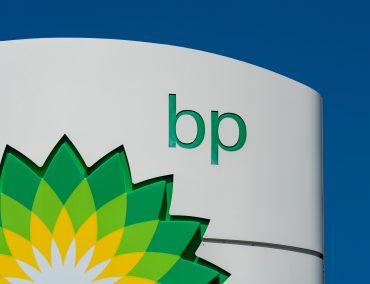
- Energy Markets
- Fossil Fuels
- Oilfields
BP Signs Libya Deal to Redevelop Giant Sarir, Messla Oilfields
6 minute read

Libya’s giant oilfields attract BP investment as national production targets aim for historic 2-million-barrel milestone
Key Takeaways
- BP signs Libya exploration deal with National Oil Corporation to study redevelopment of Sarir and Messla oilfields, marking strategic shift back toward fossil fuel investments
- Libya targets 2 million barrels per day by 2025 from current 1.27 million, with these super-giant fields critical to achieving production goals
- BP shares rise 0.8% to 374.60 pence following announcement, reflecting investor confidence in company’s renewed presence in high-potential region
Introduction
BP has signed a memorandum of understanding with Libya’s National Oil Corporation to explore redeveloping two of the country’s largest oilfields, signaling a strategic pivot back toward fossil fuel investments. The deal targets the Sarir and Messla fields in Libya’s Sirte basin, both super-giant assets that represent significant untapped potential in the recovering North African energy market.
This agreement marks BP’s most substantial re-engagement with Libya’s oil sector since lifting force majeure in 2023. The move reflects broader industry trends as international oil companies return to Libya after years of political instability, drawn by the country’s massive reserves and ambitious production targets.
Key Developments
The memorandum of understanding establishes a framework for BP to assess technical data and evaluate redevelopment opportunities across the Sarir and Messla fields. Originally discovered in 1961 and 1971 respectively, these mature assets require significant technological expertise to optimize production from aging infrastructure.
BP’s approach emphasizes risk management through phased engagement. The company will conduct comprehensive feasibility studies before committing to large-scale capital investments, allowing for thorough evaluation of both technical and commercial viability.
The agreement extends beyond the primary fields to include exploration of adjacent areas and unconventional oil and gas prospects. This comprehensive scope demonstrates BP’s intention to maximize resource utilization across the broader region, building on its renewed partnership with Libya’s state oil company.
Market Impact
BP shares gained 0.8% to 374.60 pence in London trading following the announcement, indicating investor approval of the company’s strategic direction. The positive market response reflects confidence in BP’s measured approach to re-entering a high-potential but historically challenging market.
Libya’s oil sector generated $9.43 billion in revenue during the first half of 2025, underscoring the financial significance of successful field redevelopment. Current production stands at approximately 1.27 million barrels per day, with the National Oil Corporation targeting expansion to 2 million barrels per day by 2025.
The broader Libyan energy market shows renewed international interest, with recent tender offerings for 22 new exploration blocks containing over 10 billion barrels of oil equivalent in reserves. This activity signals growing confidence in the country’s political stability and regulatory framework.
Strategic Insights
BP’s Libya engagement represents a calculated shift toward mature field redevelopment, an increasingly important strategy as easily accessible reserves decline globally. The company’s expertise in managing complex, aging oil infrastructure positions it well to extract value from these super-giant fields.
The deal reflects broader industry recognition that Libya’s vast hydrocarbon reserves remain underexploited due to years of political instability. As the security situation stabilizes, international oil companies view the country as offering some of the world’s most attractive exploration and redevelopment opportunities.
BP’s phased approach through memorandum of understanding rather than immediate binding contracts demonstrates sophisticated risk management. This strategy allows the company to assess opportunities while limiting exposure to potential political or operational disruptions.
Expert Opinions and Data
“This agreement reflects our strong interest in deepening our partnership with NOC and supporting the future of Libya’s energy sector,” said William Lin, BP Executive Vice President of Gas and Low Carbon Energy. Lin emphasized BP’s global experience in redeveloping giant oil fields as a key asset for optimizing performance of Libya’s world-class resources.
The partnership builds on BP’s renewed collaboration with Libya’s National Oil Corporation, which resumed last year after a decade-long pause. This earlier engagement, conducted in cooperation with Eni SpA, focused on natural gas exploration and established the foundation for this expanded oil field development initiative.
Industry analysts view the agreement as validation of Libya’s improving investment climate. The country’s ability to attract major international oil companies signals growing confidence in its regulatory stability and long-term commercial potential, despite ongoing political complexities.
Conclusion
BP’s Libya agreement represents a strategic return to high-potential hydrocarbon assets, balancing growth opportunities with measured risk exposure. The company’s focus on mature field redevelopment aligns with industry trends toward maximizing existing resources through advanced technology and operational expertise.
The deal positions BP to potentially capture significant production increases as Libya pursues ambitious output targets. Success in redeveloping these super-giant fields could substantially boost BP’s portfolio while contributing to Libya’s economic recovery and energy sector modernization.








